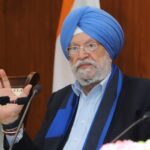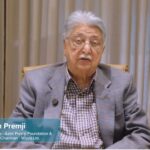
The United States Supreme Court has denied a final plea filed by Tahawwur Rana, an accused in the 2008 Mumbai terror attacks, effectively clearing the way for his extradition to India. A notice posted on the Supreme Court’s website on Monday confirmed the decision, stating simply: “Application denied by the Court.”
Rana, a 64-year-old Canadian national of Pakistani origin, is currently held at the Metropolitan Detention Center in Los Angeles. He is wanted in India for his alleged involvement in the deadly 26/11 Mumbai terror attacks, which claimed 166 lives and left over 300 injured. The attacks were carried out by Pakistan-based terror group Lashkar-e-Taiba, and Rana is accused of providing material support to the attackers.
Rana filed an “Emergency Application” with the U.S. Supreme Court on February 27 this year, seeking to halt his extradition. His legal team argued that the charges were politically motivated and that he would face unfair treatment if sent to India. However, with the top court’s denial, the judicial path to avoid extradition appears closed.
The move comes after U.S. President Donald Trump approved Rana’s extradition in late February, following a high-level meeting with Indian Prime Minister Narendra Modi. The approval was based on the provisions of the India-U.S. Extradition Treaty signed in 1997. The treaty allows either country to extradite individuals facing criminal charges in the requesting nation, subject to legal and procedural safeguards.
India has long sought Rana’s custody, pointing to his ties with David Coleman Headley, another accused in the case who has admitted to scouting locations in Mumbai for the attacks. Rana allegedly facilitated Headley’s travel and cover through his Chicago-based immigration firm.
Last year, a U.S. federal court had also ruled that Rana could be extradited to India, rejecting his claims of double jeopardy and unfair prosecution. With the Supreme Court’s rejection of his final appeal, authorities in both countries are expected to initiate the formal transfer process soon.


















No Comments: